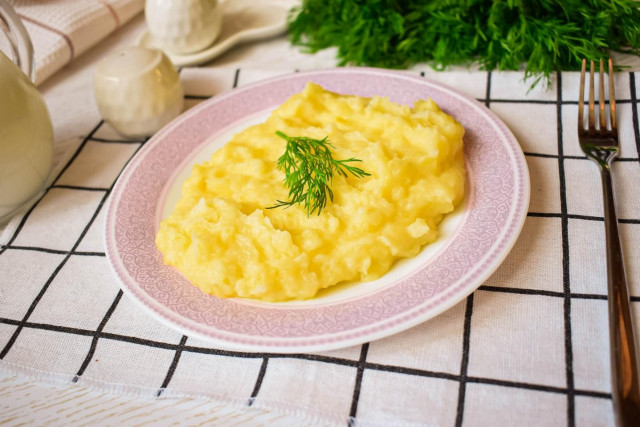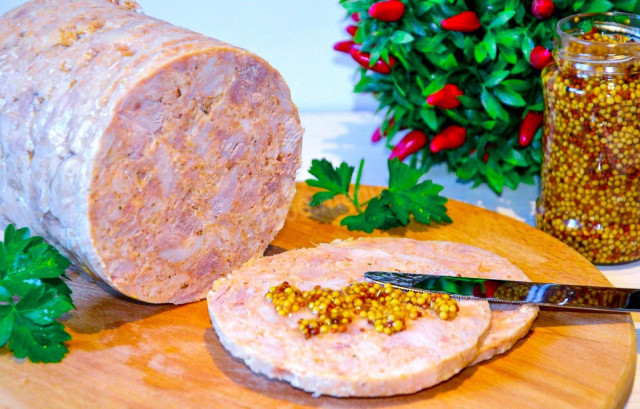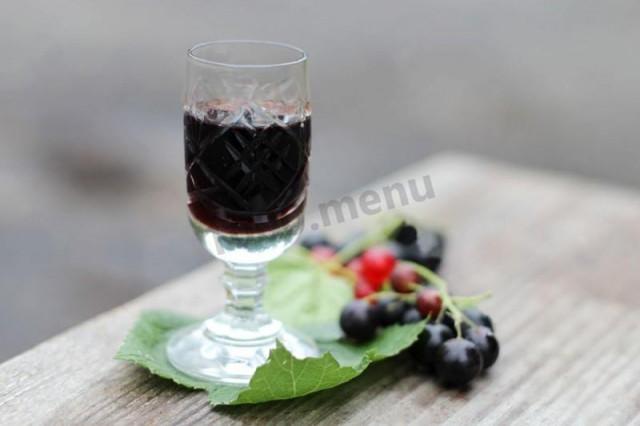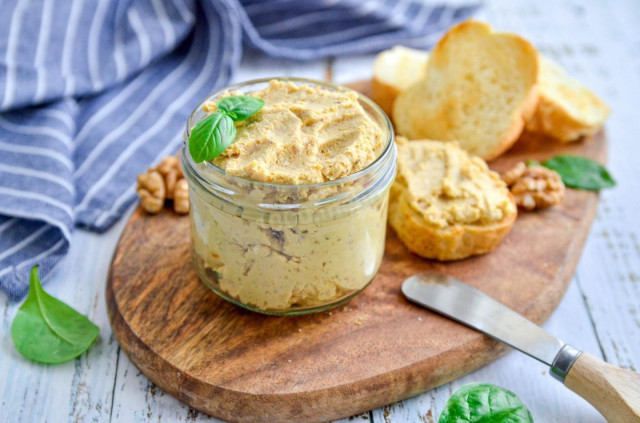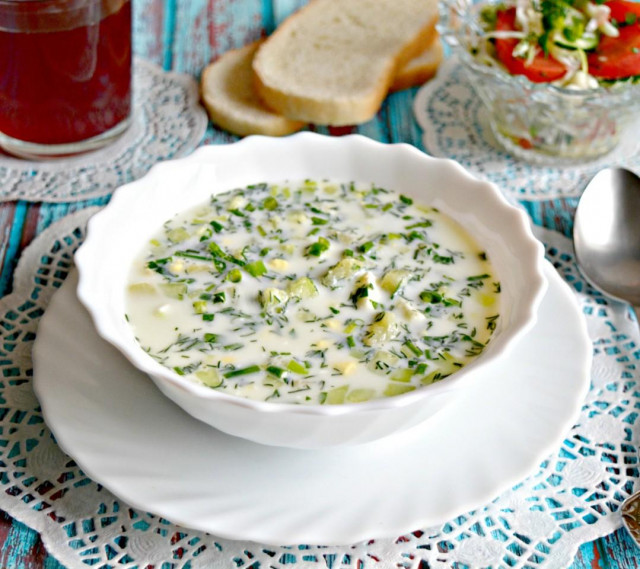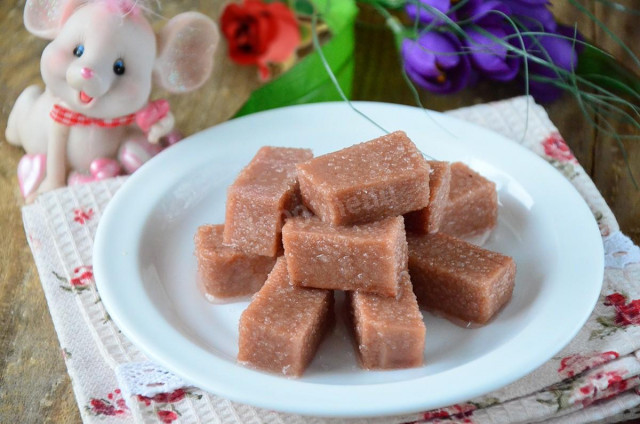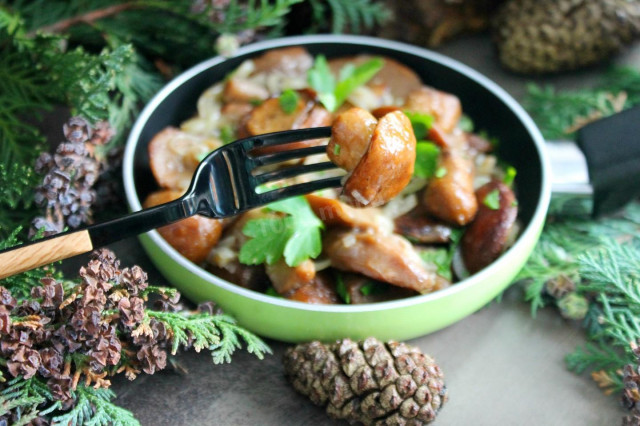Composition / ingredients
Step-by-step cooking
Step 1:
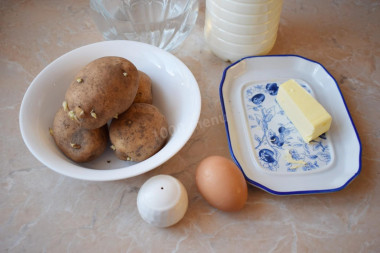
How to make mashed potatoes with egg and milk? Prepare the products. Wash the potatoes well in running water from contamination. An egg can be taken of any size, and milk of any fat content. Choose high-quality, natural oil, without vegetable fats.
Step 2:
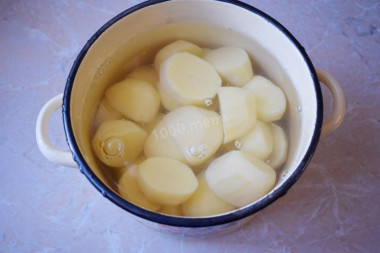
Put the peeled potatoes in a saucepan in which you will cook mashed potatoes. If the tubers are large, then cut them into 2-3 parts. Fill the potatoes with cold, clean water so that they are completely covered with it. Put the pan on the fire, add salt to taste and bring to a boil. Turn down the heat and cook the potatoes for 20-25 minutes until tender. The exact time will depend on the potato variety and the size of the pieces.
Step 3:
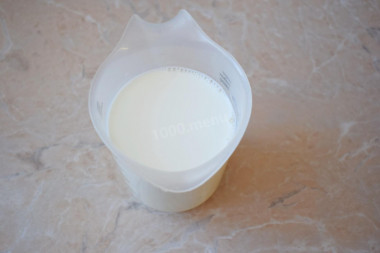
Preheat the milk to a hot state. This can be done in any convenient way — on the stove in a ladle or in the microwave. Do not skip this step — adding cold milk will cause the puree to become an ugly gray color.
Step 4:
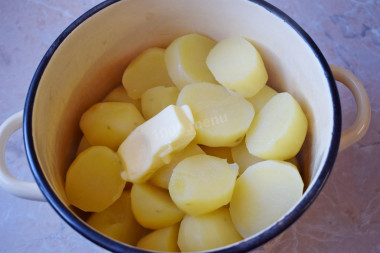
The readiness of potatoes can be checked by piercing it with a knife — it should easily enter the tuber. When the boiled potatoes become soft, drain the hot water from them and add a little butter. On hot potatoes, the butter will immediately begin to melt.
Step 5:
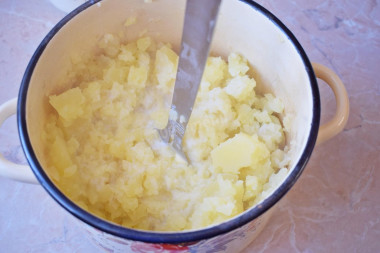
Mash potatoes together with butter with a masher. Then pour in some milk and remember more.
Step 6:
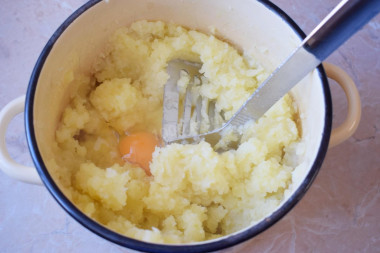
The first heat from the potatoes has already managed to come out, so you can add an egg. Be sure to wash the eggs before use, as even the seemingly clean shell may contain harmful bacteria. It is best to use food detergents and a brush. Also mash the added egg together with the potatoes.
Step 7:
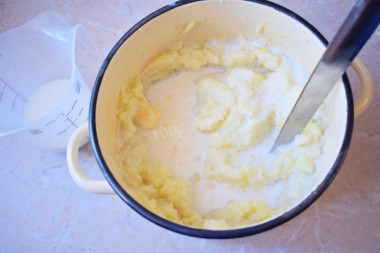
Pour the remaining milk into the mashed potatoes and knead. Mashed potatoes will absorb milk. Adjust the consistency of the finished puree by adding milk. For a more lush and homogeneous consistency, you can use a mixer and beat the puree with it. But I don't like this way. In my opinion, the whipped puree becomes too sticky and sticky.
Step 8:
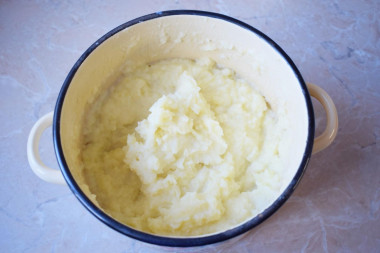
If you like mashed potatoes of a more liquid consistency, then add a little more milk. The puree is ready. Serve it as a side dish to any meat or fish dishes. Enjoy your meal!
To get a more creamy taste, you can use cream instead of milk. But this will affect the calorie content of the dish. If you use a homemade egg, the color of the finished puree will turn yellowish.
Root vegetables are best washed with a brush or a hard sponge under running water.
How to choose the perfect pot for soup, porridge or pickling cucumbers read the article about pots.
For cooking, it is better to use filtered or bottled water that is neutral to taste. If you use tap water, keep in mind that it can give the dish an unpleasant characteristic taste.
Calorie content of the products possible in the composition of the dish
- Ripe potatoes - 80 kcal/100g
- Baked potatoes - 70 kcal/100g
- Mashed potatoes - 380 kcal/100g
- Boiled potatoes - 82 kcal/100g
- Potatoes in uniform - 74 kcal/100g
- Fried potatoes - 192 kcal/100g
- Whole cow's milk - 68 kcal/100g
- Milk 3.5% fat content - 64 kcal/100g
- Milk 3.2% fat content - 60 kcal/100g
- Milk 1.5% fat content - 47 kcal/100g
- Concentrated milk 7.5% fat content - 140 kcal/100g
- Milk 2.5% fat content - 54 kcal/100g
- Chicken egg - 157 kcal/100g
- Egg white - 45 kcal/100g
- Egg powder - 542 kcal/100g
- Egg yolk - 352 kcal/100g
- Ostrich egg - 118 kcal/100g
- Butter 82% - 734 kcal/100g
- Amateur unsalted butter - 709 kcal/100g
- Unsalted peasant butter - 661 kcal/100g
- Peasant salted butter - 652 kcal/100g
- Melted butter - 869 kcal/100g
- Salt - 0 kcal/100g
- Water - 0 kcal/100g

